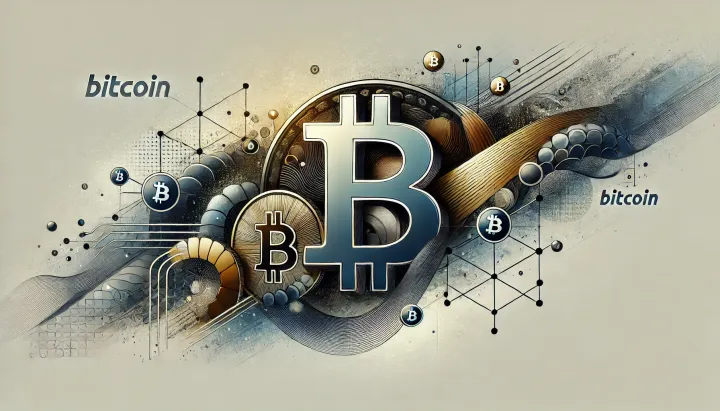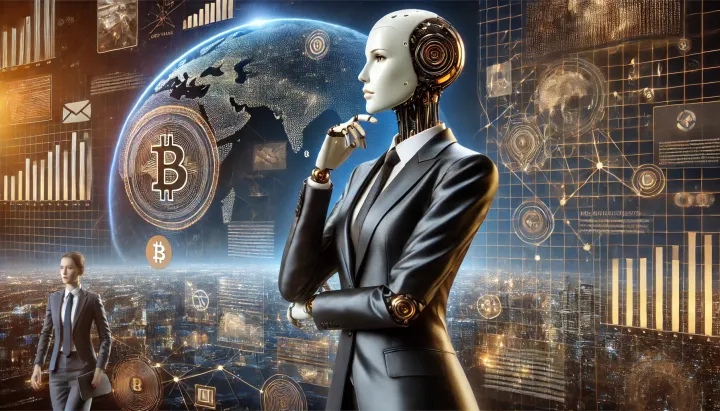AI Polytheism, Bitcoin Reserves, and the State–Network Divide
The August 29, 2025 episode of the Peter H. Diamandis Podcast features Balaji Srinivasan explaining how AI, Bitcoin, and geopolitical realignments are reshaping global structures.

- My 'briefing notes' summarize the content of podcast episodes; they do not reflect my own views.
- They contain (1) a summary of podcast content, (2) potential information gaps, and (3) some speculative views on wider Bitcoin implications.
- Pay attention to broadcast dates (I often summarize older episodes)
- Some episodes I summarize may be sponsored: don't trust, verify, if the information you are looking for is to be used for decision-making.
Summary
The August 29, 2025 episode of the Peter H. Diamandis Podcast features Balaji Srinivasan explaining how AI, Bitcoin, and geopolitical realignments are reshaping global structures. Srinivasan argues that artificial intelligence is “polytheistic,” with multiple AGIs developing in parallel, while Bitcoin operates as the settlement layer of decentralized network societies. He warns that Western institutions face accelerating decline as jurisdictional arbitrage, network states, and alternative reserves redefine finance, governance, and innovation.
Take-Home Messages
- Geopolitical Realignment: The coming decade is defined by China’s centralized physical dominance and the Internet’s decentralized digital networks.
- AI Polytheism: Artificial intelligence will evolve through many competing AGIs, requiring human verification and oversight to maintain reliability.
- Bitcoin as Settlement: Bitcoin is positioned as the high-value reserve layer for network societies, with off-chain and layered systems extending its reach.
- Regulatory Bottlenecks: Innovation in biotech and AI is constrained more by regulatory inertia than by technical limitations, driving jurisdictional arbitrage.
- Entrepreneurial Resilience: Founders are advised to build direct digital influence, relocate to favorable jurisdictions, and secure Bitcoin in cold storage.
Overview
Balaji Srinivasan situates the decade ahead as a contest between centralized physical power, represented by China, and decentralized digital networks. He argues that the internet has already transformed politics, undermined legacy institutions, and redirected legitimacy toward network-native systems. This dynamic, he suggests, will intensify as Western fiat currencies weaken and capital migrates to Bitcoin and gold-backed alternatives.
On artificial intelligence, Srinivasan rejects the idea of a single, runaway AGI. He emphasizes that multiple frontier models will coexist, competing with each other but constrained by mathematical limits, verification bottlenecks, and adversarial environments. In this view, AI functions best as “amplified intelligence,” magnifying the capability of skilled human users rather than replacing them outright.
Bitcoin emerges in his analysis as the settlement system for digital societies, equivalent to digital gold. He likens its role to Fedwire for the free internet, with layered solutions or wrapped assets handling higher volumes. By 2035, he contends, countries that fail to integrate Bitcoin risk losing credibility in global finance and governance.
Turning to biotech and longevity, Srinivasan compares tolerated monetary inflation to the medical system’s acceptance of gradual aging. He argues that regulatory inertia, rather than scientific possibility, blocks progress in areas such as gene therapy and life extension. Network states and special jurisdictions, he suggests, may become the proving grounds for breakthroughs that traditional regulators suppress.
In closing, Srinivasan offers practical guidance for entrepreneurs and individuals. He urges them to bypass legacy media by building direct distribution channels, move Bitcoin into self-custody, and cluster in jurisdictions like Texas, Florida, or emerging network states. Startup societies, in his vision, will evolve into platforms that integrate governance, finance, and innovation outside the constraints of legacy states.
Stakeholder Perspectives
- Central banks and finance ministries: Monitor Bitcoin’s growing reserve role while grappling with capital flight and weakened fiat credibility.
- Financial institutions and exchanges: Evaluate custody, settlement, and liquidity services under rising compliance and jurisdictional risk.
- AI developers and enterprises: Adapt to a competitive multi-model environment where human oversight and evaluation dominate.
- Regulators (finance, biotech, data): Confront systemic risks while modernizing oversight to avoid obstructing innovation.
- Biotech and longevity firms: Seek permissive jurisdictions and new legal pathways to accelerate breakthroughs beyond legacy constraints.
Implications and Future Outlook
The rise of Bitcoin as a reserve asset signals a shift in global monetary sovereignty, pressuring states to diversify into decentralized reserves or risk marginalization. Policymakers who resist integration may see diminished legitimacy, while flexible jurisdictions attract capital and talent. This transition could accelerate the decline of traditional Western financial dominance.
Artificial intelligence will remain multi-polar rather than monopolistic, with fragmented but competitive AGI models advancing in parallel. Human-in-the-loop oversight will be central to ensuring quality, with skilled operators commanding disproportionate influence. The absence of a singular intelligence highlights the importance of governance, verification, and transparency in AI deployment.
Biotech and longevity breakthroughs will depend more on regulatory reform than on scientific feasibility. Network states and special economic zones may emerge as innovation hubs, drawing investment and talent away from restrictive regions. This divergence will pressure traditional regulators to adapt or risk being sidelined by faster-moving jurisdictions.
Some Key Information Gaps
- How sustainable is the China vs. Internet dichotomy as a lens for geopolitical conflict? Clarifying this framework is essential for policymakers to understand the balance of physical and digital power.
- How can Bitcoin achieve reserve currency status without destabilizing existing monetary systems? Addressing this question is critical to avoid systemic risks during monetary transition.
- What reforms could reduce regulatory bottlenecks that block biotech and AI breakthroughs? Identifying solutions is necessary to accelerate innovation without sacrificing safety.
- What institutional models will enable network states to scale while avoiding failures of legacy governance? Exploring alternatives will inform the governance of emerging digital societies.
- How will the presence of multiple AGIs affect global competition in intelligence development? Understanding this dynamic will help anticipate risks and opportunities in AI geopolitics.
Broader Implications for Bitcoin
Monetary Sovereignty Recast
Bitcoin’s fixed supply challenges fiat-based monetary authority and compels states to consider hybrid reserve models. As more jurisdictions benchmark reserves in Bitcoin, credibility may shift toward decentralized stores of value. This evolution will likely restructure global finance and force central banks to compete directly with non-state monetary systems.
Jurisdictional Competition
Regulatory bottlenecks in biotech and AI create incentives for talent and capital to flow toward permissive jurisdictions. Network states and special zones may capture early breakthroughs, gaining economic leverage over slower-moving legacy systems. This competitive dynamic could redefine global innovation hierarchies.
Governance Transformation
The rise of startup societies suggests governance may diversify beyond the nation-state. Bitcoin’s settlement role makes it the financial backbone of these experiments, supporting legitimacy outside traditional sovereignty. If scalable, such models could fragment authority while producing adaptive and digitally native governance structures.
Human–Machine Synergy
AI’s reliance on human oversight positions technical literacy as a decisive advantage. Skilled operators who can evaluate AI outputs will exert growing influence in digital economies. This dynamic risks widening socio-economic divides while creating new elite groups defined by expertise rather than geography.



Comments ()